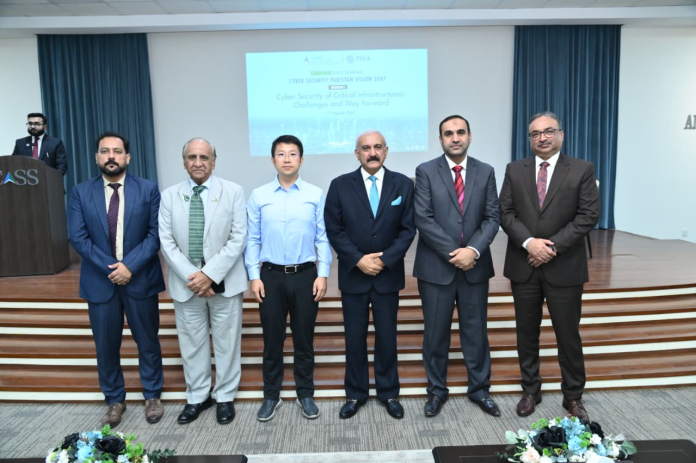ISLAMABAD, AUG 13 (DNA):The Centre for Aerospace & Security Studies (CASS), Islamabad, in collaboration with the Pakistan Information Security Association (PISA), hosted a seminar titled ‘Cyber Security: Pakistan Vision 2047’ on Tuesday, 12 August 2025. The event convened leading defence experts, technologists, policymakers, academics, private sector representatives, and international partners to deliberate on Pakistan’s long-term cybersecurity strategy at CASS. As an independent think tank, CASS regularly arranges academic events for academia and practitioners interested in National Security in its wider context.
The two sessions of the seminar examined the transformative potential of cyber technologies while addressing the growing complexities of the cyber threat landscape. Speakers observed that cyberspace had evolved into the fifth domain of warfare—alongside land, sea, air, and space—posing unprecedented challenges to the protection of national institutions, critical infrastructure, and financial systems from increasingly sophisticated attacks. There was accordingly a need for Pakistan to formalise its vision and goals in Cyber Security for 2047.
In the opening remarks, the speakers emphasised that the integrity, security, and sovereignty of digital infrastructure had become foundational to both national defence and economic development. They stressed the need for comprehensive strategies to leverage cyberspace and technological advancements to secure Pakistan’s digital future while positioning the country as a competitive player in the innovation-driven global economy.
Panel discussions addressed a range of key themes, including cybersecurity as a pillar of economic resilience and global credibility, the integration of cutting-edge technologies and digital governance for sustainable growth, building indigenous capabilities to strengthen national defence and overcome developmental challenges, and institutional and policy frameworks for long-term cyber resilience.
In his concluding remarks, President CASS Air Marshal Javaid (Retd) emphasised that, for a Pakistan of 2047, the cyber domain represents not only a defensive necessity but also a strategic enabler for economic transformation. By integrating advanced technologies, fostering secure innovation ecosystems, and implementing robust policy measures, the nation could turn cybersecurity into a catalyst for development.
The seminar concluded with a consensus on the urgent need for coordinated efforts between government, industry, academia, and civil society to safeguard Pakistan’s digital sovereignty. Participants agreed that a unified, forward-looking approach would be critical for ensuring the country’s cyber resilience in an increasingly interconnected and contested digital landscape.

















